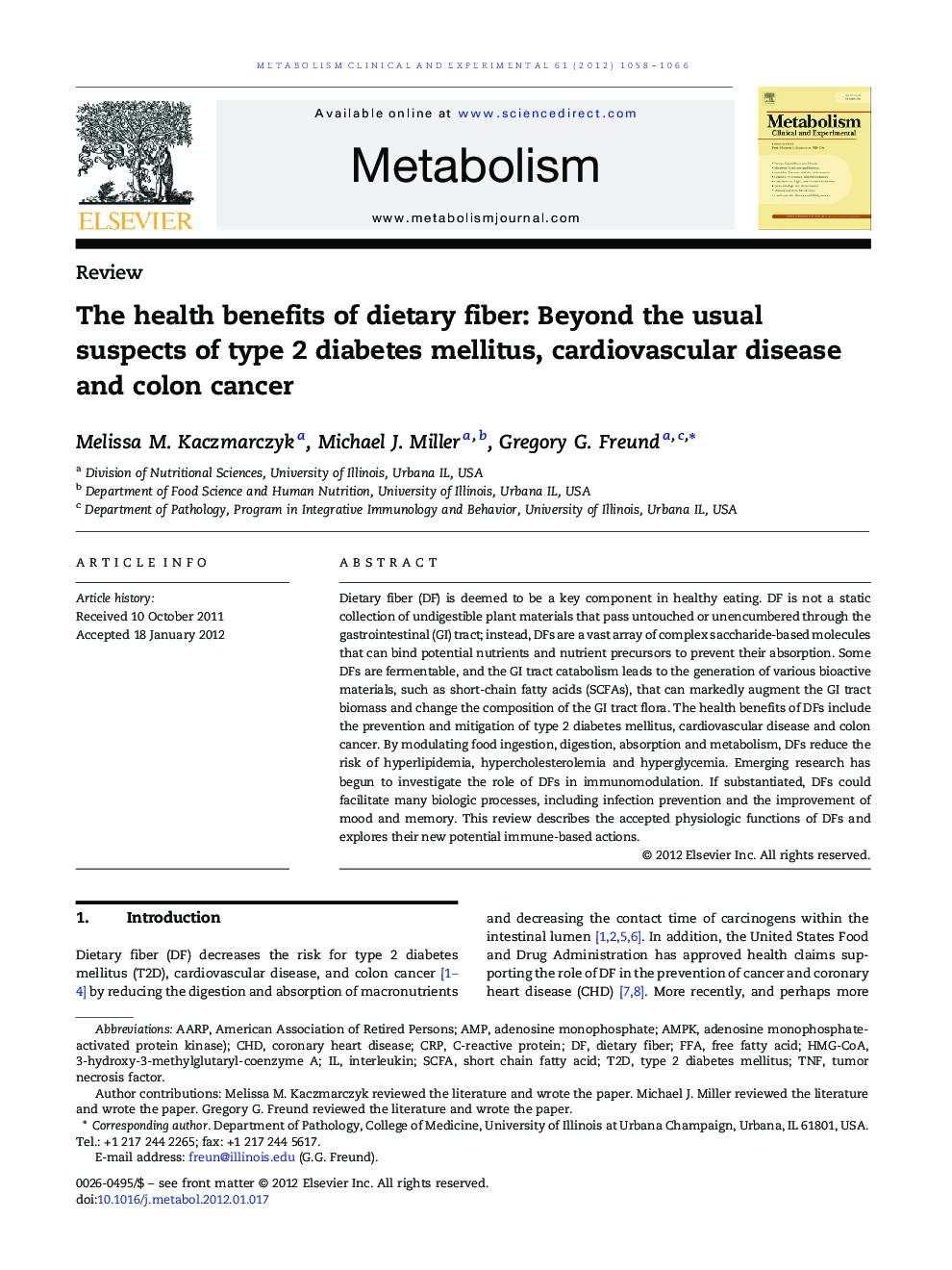| Article ID | Journal | Published Year | Pages | File Type |
|---|---|---|---|---|
| 5903667 | Metabolism | 2012 | 9 Pages |
Abstract
Dietary fiber (DF) is deemed to be a key component in healthy eating. DF is not a static collection of undigestible plant materials that pass untouched or unencumbered through the gastrointestinal (GI) tract; instead, DFs are a vast array of complex saccharide-based molecules that can bind potential nutrients and nutrient precursors to prevent their absorption. Some DFs are fermentable, and the GI tract catabolism leads to the generation of various bioactive materials, such as short-chain fatty acids (SCFAs), that can markedly augment the GI tract biomass and change the composition of the GI tract flora. The health benefits of DFs include the prevention and mitigation of type 2 diabetes mellitus, cardiovascular disease and colon cancer. By modulating food ingestion, digestion, absorption and metabolism, DFs reduce the risk of hyperlipidemia, hypercholesterolemia and hyperglycemia. Emerging research has begun to investigate the role of DFs in immunomodulation. If substantiated, DFs could facilitate many biologic processes, including infection prevention and the improvement of mood and memory. This review describes the accepted physiologic functions of DFs and explores their new potential immune-based actions.
Keywords
Related Topics
Life Sciences
Biochemistry, Genetics and Molecular Biology
Endocrinology
Authors
Melissa M. Kaczmarczyk, Michael J. Miller, Gregory G. Freund,
